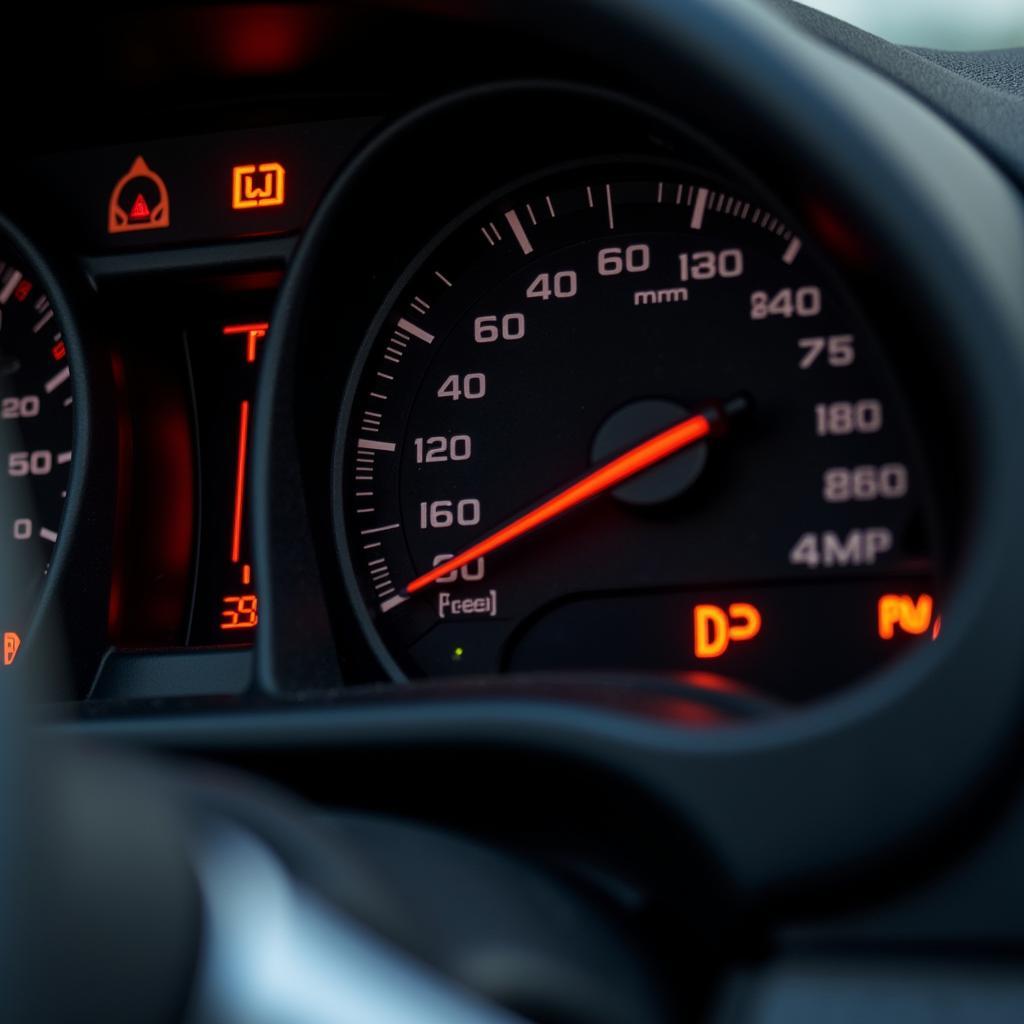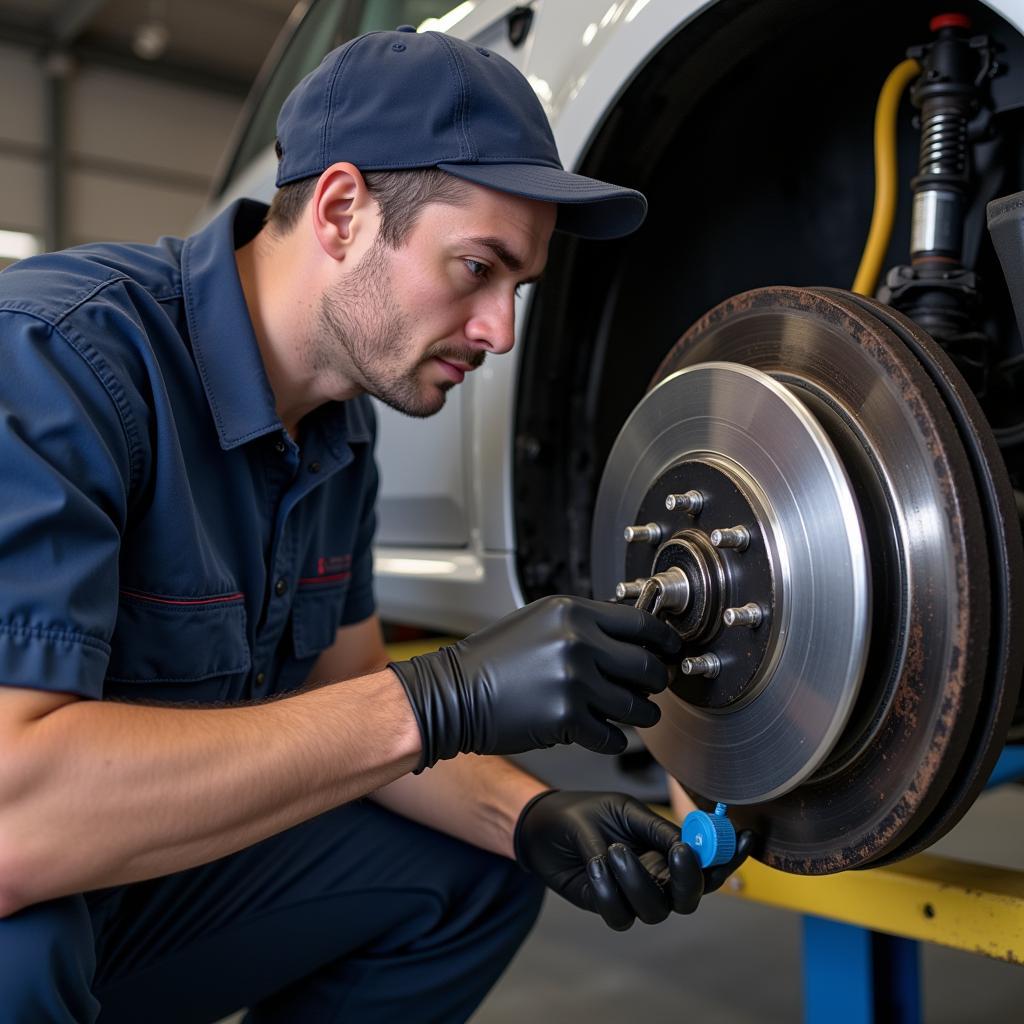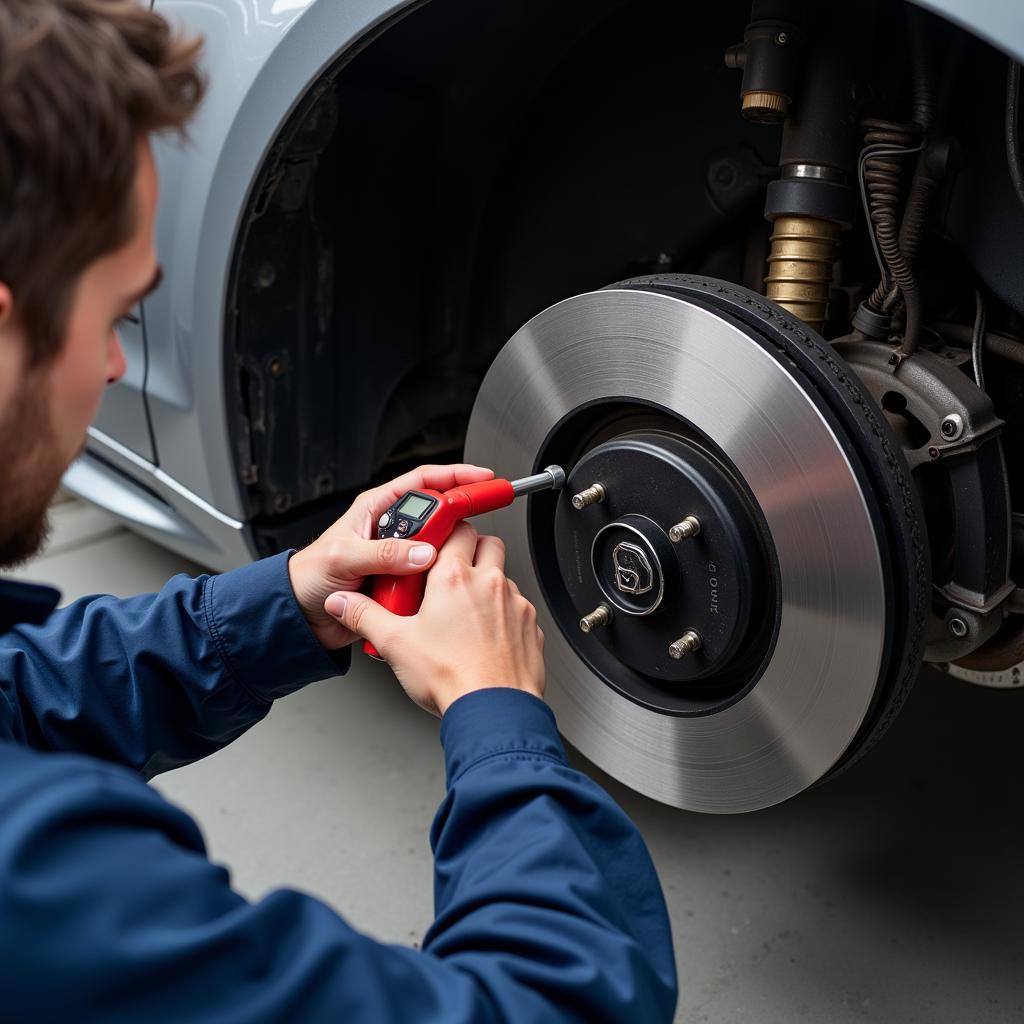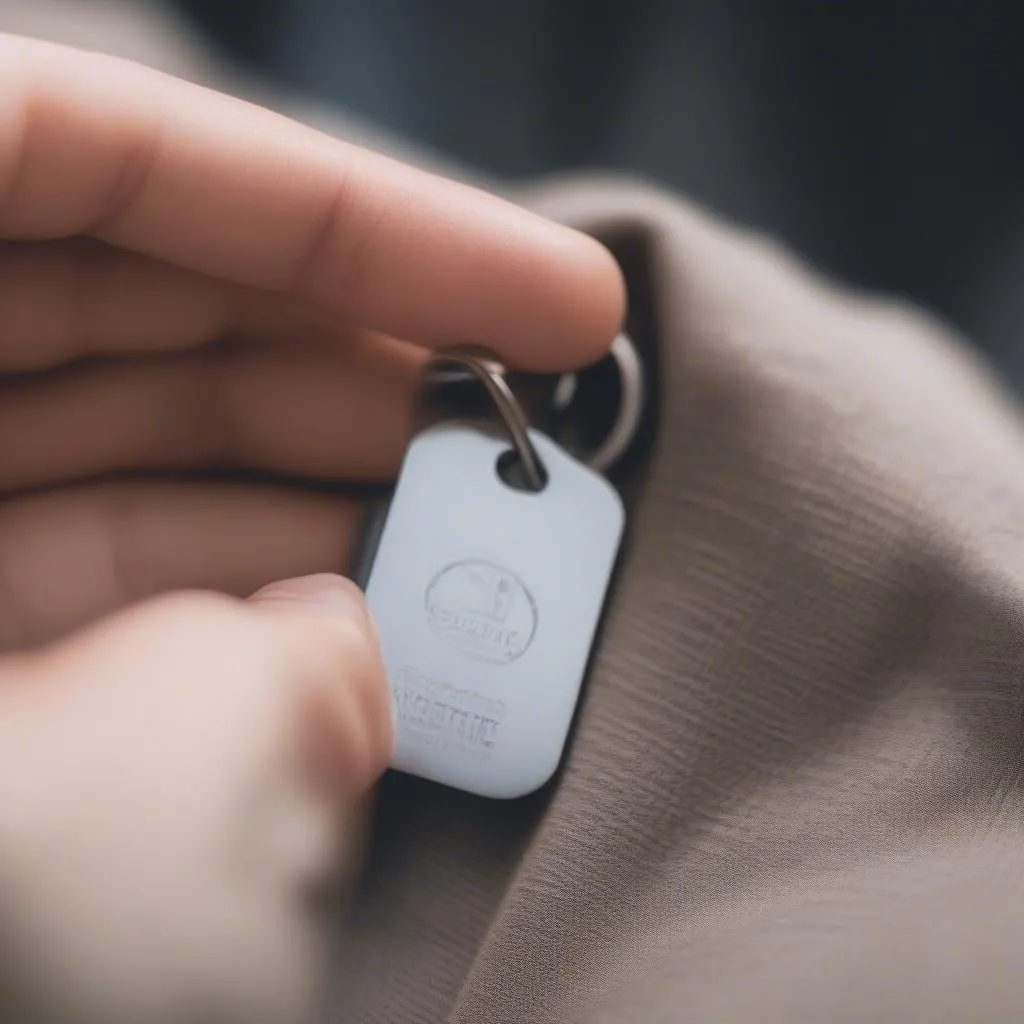The brake warning light on your dashboard is a crucial safety feature in your Volkswagen Beetle. When it illuminates, it signals a potential problem with your braking system that requires immediate attention. Ignoring this warning light could lead to brake failure and dangerous driving conditions. This comprehensive guide will delve into the common causes of a Volkswagen Beetle brake warning light and provide insights into diagnosing and resolving the issue.
 Volkswagen Beetle brake warning light on dashboard
Volkswagen Beetle brake warning light on dashboard
Understanding Your Volkswagen Beetle’s Brake Warning Light
The brake warning light can illuminate in different ways:
- Solid red light: This usually indicates a serious issue with your braking system, such as low brake fluid or a malfunctioning component.
- Flashing red light: A flashing light often points to a problem with the ABS (Anti-lock Braking System).
Regardless of how the light appears, it’s crucial to have your vehicle inspected by a qualified mechanic immediately.
Common Causes of a Volkswagen Beetle Brake Warning Light
1. Low Brake Fluid Level
One of the most common culprits behind a lit brake warning light is a low brake fluid level. Brake fluid is essential for transmitting the force from your foot on the brake pedal to the wheels, allowing you to stop your car. Over time, brake pads wear down, and the brake fluid level naturally decreases.
Solution: If the brake fluid level is low, it’s important to top it off with the correct type of DOT (Department of Transportation) fluid specified in your Volkswagen Beetle owner’s manual. However, simply adding fluid might not solve the underlying issue if a leak exists.
2. Worn Brake Pads
Brake pads are designed to wear down over time as you use them to stop your vehicle. When the friction material on the pads wears thin, a sensor triggers the brake warning light.
Solution: Worn brake pads need to be replaced to ensure optimal braking performance and safety.
3. Faulty Brake Lines or Hoses
Brake lines and hoses carry the brake fluid from the master cylinder to the calipers at each wheel. A leak or damage to these lines can lead to a loss of pressure in the braking system.
Solution: Inspecting the brake lines for any signs of leakage or damage is crucial. If a leak is found, the affected line or hose will need to be replaced.
 Mechanic inspecting the brake fluid reservoir of a Volkswagen Beetle
Mechanic inspecting the brake fluid reservoir of a Volkswagen Beetle
4. Malfunctioning ABS System
While not directly related to your primary braking system, a malfunctioning ABS can also trigger the brake warning light. The ABS prevents wheel lock-up during hard braking, and a fault in the system can compromise this safety feature.
Solution: Diagnosing an ABS issue often requires specialized diagnostic tools. If a problem with the ABS is suspected, it’s best to consult with a qualified mechanic or take your Volkswagen Beetle to a dealership.
volkswagen beetle brake pad warning light
5. Faulty Brake Light Switch
While less common, a faulty brake light switch can also trigger the brake warning light. This switch is responsible for turning on your brake lights when you press the brake pedal.
Solution: A faulty brake light switch will need to be replaced.
Diagnosing the Issue
Determining the exact cause of the brake warning light in your Volkswagen Beetle often requires further investigation. Here are some steps to help you diagnose the issue:
- Check the Brake Fluid Level: This is the easiest and first step. If the fluid level is low, add the recommended brake fluid. However, if the level remains low after adding fluid, there’s likely a leak.
- Inspect the Brake Pads: Visually inspect the brake pads through the wheel spokes. If the pads appear thin or worn down, they need replacement.
- Look for Leaks: Carefully examine the brake lines and hoses for any signs of leaking brake fluid. Look for wet spots or drips around the wheels and under the vehicle.
- Listen for Unusual Noises: Pay attention to any unusual noises when applying the brakes, such as grinding, squealing, or clicking. These noises can indicate worn brake components.
- Feel for Brake Pedal Issues: Does the brake pedal feel spongy, go all the way to the floor, or pulsate? These are signs of potential brake system problems.
When to Consult a Professional
While some brake-related issues might seem straightforward to address, it’s crucial to remember that brakes are a critical safety system in your Volkswagen Beetle. If you’re uncertain about diagnosing or resolving the problem yourself, it’s always best to seek professional help.
“A brake warning light is never something to ignore,” says master mechanic John Miller. “Even if your car seems to be braking fine, there could be an underlying issue that could lead to sudden brake failure down the road.”
brake hydraulic system red warning light
Conclusion
Addressing a Volkswagen Beetle brake warning light promptly is essential for ensuring your safety and the safety of others on the road. By understanding the potential causes and following the diagnostic tips outlined in this guide, you can take the necessary steps to resolve the issue and restore your peace of mind while driving. Remember, when in doubt, always consult with a qualified mechanic for expert assistance.


